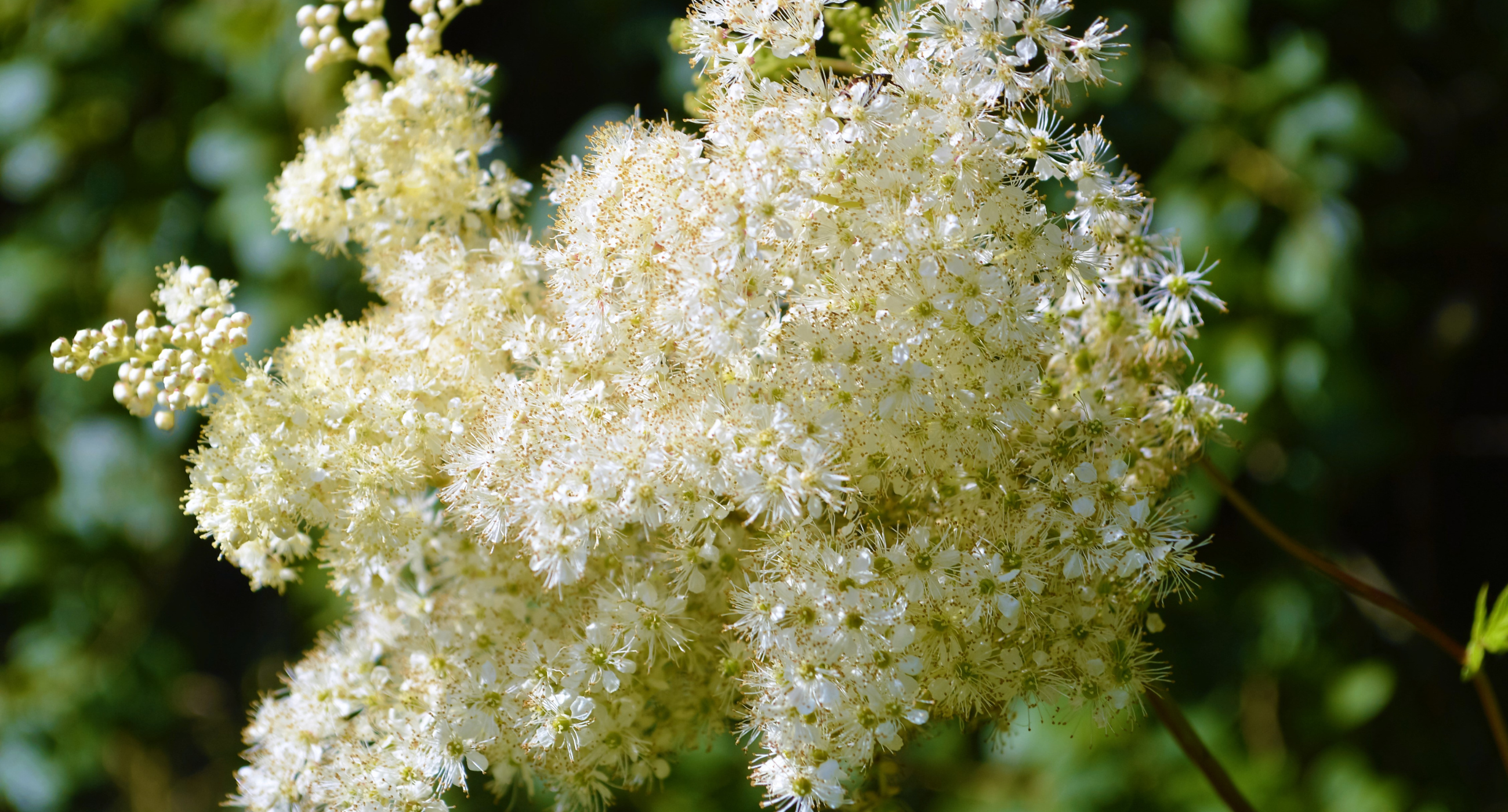
Meadowsweet
Scientific Name: Filipendula ulmaria
Herbal Profile: Meadowsweet (Filipendula ulmaria)
Botanical Information
- Botanical Name: Filipendula ulmaria
- Family: Rosaceae
- Common Names: Meadowsweet, Queen of the Meadow, Bridewort, Meadow-wort
- Habitat: Native to Europe and Western Asia, often found in damp meadows, ditches, and along stream banks.
Parts Used
- Flowers
- Leaves
- Roots
Active Constituents
- Salicylates (salicin, methyl salicylate)
- Tannins
- Flavonoids (quercetin, kaempferol)
- Phenolic glycosides
- Volatile oils
Medicinal Properties
- Anti-inflammatory: Salicylates provide a natural anti-inflammatory effect, similar to aspirin.
- Analgesic: Helps relieve pain.
- Antipyretic: Reduces fever.
- Astringent: Tannins help to tighten tissues and reduce bleeding.
- Antacid: Reduces acidity in the stomach, aiding in digestive issues.
- Diuretic: Promotes urine production, which can help eliminate toxins.
Therapeutic Uses
- Digestive Health: Traditionally used to treat indigestion, heartburn, gastritis, and peptic ulcers due to its antacid and anti-inflammatory properties.
- Pain Relief: Used to alleviate headaches, joint pain, and muscle pain.
- Fever Reduction: Helps lower fevers associated with colds and flu.
- Urinary Health: Supports urinary tract health and helps with conditions like cystitis.
- Anti-Rheumatic: Beneficial for rheumatic conditions due to its anti-inflammatory properties.
Preparations and Dosage
- Tea/Infusion: Commonly prepared as a tea by steeping the dried flowers and leaves in hot water.
- Tincture: Extracted in alcohol, providing a concentrated form.
- Capsules/Tablets: Available in standardized forms for convenient use.
Safety and Precautions
- Allergies: People allergic to aspirin or other salicylates should avoid meadowsweet.
- Pregnancy and Breastfeeding: Not recommended due to insufficient safety data.
- Children: Should be used cautiously and under professional guidance, especially due to the salicylate content.
- Drug Interactions: Can interact with blood thinners and other medications affecting blood clotting.
Historical and Cultural Use
- Historically, meadowsweet was used by the Druids as a sacred herb and was one of the three most sacred herbs to the ancient Celts, alongside water-mint and vervain. It was used in traditional medicine across Europe for its wide range of healing properties.
Modern Research
- Current research supports its anti-inflammatory and analgesic effects, particularly in relation to its salicylate content. It continues to be a popular remedy in herbal medicine for digestive complaints and pain management.
Meadowsweet's pleasant aroma and medicinal versatility make it a valuable herb in both traditional and modern herbal practices.
